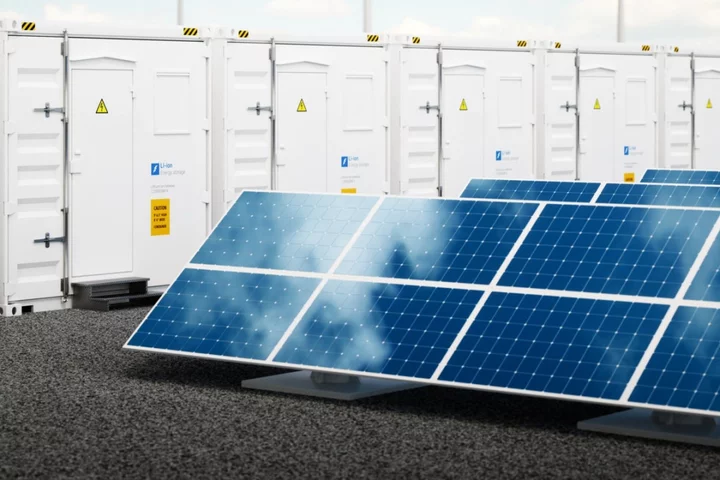
‘We let you down’: Peloton apologises after issues with Thanksgiving ride
Peloton has apologised to its customers after technical issues kept them from joining its special Thanksgiving ride. The rides had been held to break the Guinness World Records for the largest live streamed cycling and running classes. But they also had the effect of breaking Peloton’s systems, with riders unable to join the “Turkey Burn” class with instructor Robin Arzón for the first 20 minutes. Peloton’s relatively new chief executive, Barry McCarthy, apologised for the experience on the company’s official Facebook page. “We set out to create an amazing annual Turkey Burn Ride experience, and we let you down,” he wrote on the page. The number of riders “overwhelmed our technical infrastructure”, he said. “I know for many of you, this has become an annual tradition, and we owe you the best possible Member experience,” he wrote. “On behalf of the team, we apologise.” Despite the issues, Peloton was able to set the records for the largest live streamed cycling and running class. The company brought in Guinness World Records officials to verify the count, and were given the record for the ”Most viewers of a static cycling lesson live stream on a Bespoke platform”, as well as for running. The cycling class had 27,550 live participants, a spokesperson said. That was lower than the number that had been seen on the leaderboard, though it is not clear whether the discrepancy was the result of the technical problems. Despite the official recognition, the ride and run is not actually Peloton’s biggest live ride: 2021 and 2020 saw more, with the latter seemingly setting the record at more than 50,000 people, according to Peloton news website Pelobuddy. Peloton saw rapid growth through 2020 and 2021, spurred in large part by the move to work out at home during lockdowns. But it has experienced a number of issues since, including recalls of its bikes and seemingly lower interest as people head back to gyms. It has lost around 80 per cent of its share price value since it was listed towards the end of 2019. And its stock has fallen almost 97 per cent since its record highs in late 2020. Read More HSBC app not working on one of the biggest shopping days of the year Nasa has received a signal from 10 million miles away Bitcoin mining rate hits all-time high amid record-breaking prediction for 2024
2023-11-25 01:21

AI breakthrough could help us build solar panels out of ‘miracle material’, scientists say
Artificial intelligence is helping engineers build solar panels out of a “miracle material”. Scientists have long been excited about the possibility of new perovskite tandem solar cells, which could help bring the vastly improved efficiency of perovskite to mass production. They have an efficiency of more than 33 per cent, dramatically higher than conventional silicon solar cells. Those tandem solar cells come with a host of other benefits, too. They rely on inexpensive raw materials and can be made relatively easily. Engineers have faced a problem, however, in making them cheaply and at scale. To make them efficient, manufacturers need to make a very thin, high-grade layer of perovskite. Doing that is difficult. It relies on a complex process that varies significantly, seemingly with little explanation. Trying to improve that process has often relied on a gradual process of trying out new possibilities through trial and error. Now scientists have successfully built a new system that uses artificial intelligence to try and work out how to build those layers better. Instead of picking through video recordings to work out how different layers work, researchers were able to train a computer system to spot the hidden signs of good and bad coatings. After the system was built, it was able to be used better understand how to change the production to make it more efficient, researchers said. “These are extremely exciting results,” said Ulrich W Paetzold, a researcher from the Karlsruhe Institute of Technology, who worked on the new study. “Thanks to the combined use of AI, we have a solid clue and know which parameters need to be changed in the first place to improve production. “Now we are able to conduct our experiments in a more targeted way and are no longer forced to look blindfolded for the needle in a haystack. This is a blueprint for follow-up research that also applies to many other aspects of energy research and materials science.” An article describing the breakthrough, ‘Discovering Process Dynamics for Scalable Perovskite Solar Cell Manufacturing with Explainable AI’, is published in Advanced Materials. Read More Tiny solar-powered van unveiled in Japan Solar panel world record smashed with ‘miracle material’ ‘We let you down’: Peloton apologises for Thanksgiving ride
2023-11-25 01:16

Sunak Will Pledge UK Support for New Climate Damage Fund at COP28
The UK plans to announce its support for a new fund that helps vulnerable countries cope with the
2023-11-25 00:57

Ancient Chinese city found perfectly preserved at the bottom of a lake
Submerged beneath a manmade lake in China lies a forgotten city, dubbed by experts as “China’s Atlantis”. The underwater city, known as the Lion City or Shi Cheng, is hidden 40 metres beneath the surface of Qiandao Lake in eastern China. In 2001, officials discovered – or rediscovered – that the metropolis had been perfectly preserved after years underwater, and by 2017 had opened it up as a diving site for tourists. But what is the history of the Lion City, and how did it end up underwater? Shi Cheng is thought to have been built during the Eastern Han Dynasty between 25AD and 200AD. It was once a political and economic hub in the eastern province of Zhejiang, with a regional seat of power located in the city. The city walls, believed to date back to the 16th century, had five entrance gates, as opposed to the traditional four in old Chinese cities, and its wide streets contain 265 archways featuring stonework of dragons, phoenixes and (you guessed it) lions. However, in 1959, the Chinese government decided to build a hydroelectric power plant in the area and, somewhat shockingly, decided to flood the city to do it. This didn’t just amount to getting rid of a historical artefact. More than 300,000 people needed to be rehoused for the project, which ultimately birthed Qiandao Lake. A surprising side effect to this was that the city remains as a time capsule to the period when it was flooded. Since the water used to submerge it did not contain anything corrosive, and was not conducive to marine life, the remains are in perfect condition. And even though it was still functioning as a city until the mid-20th century, the Lion City has still not been completely mapped out. Now, divers are slowly working through each building, structure, archway, road and house to eventually put together a full picture of what it would have looked like. Until then, it will remain at least party shrouded in mystery, as China’s very own Atlantis. How to join the indy100's free WhatsApp channel Sign up to our free indy100 weekly newsletter Have your say in our news democracy. Click the upvote icon at the top of the page to help raise this article through the indy100 rankings.
2023-11-24 23:51

U.N. meeting debates aviation emissions goal through cleaner fuels
By Allison Lampert (Reuters) -Global aviation officials on Friday sought to agree an interim target for cutting carbon emissions from
2023-11-24 22:59

Scientists discover that bacteria has 'memories' that pass on to future generations
Scientists have made an astonishing discovery that suggests bacteria contain memories to be passed on to future generations. Researchers at the University of Texas and the University of Delaware found that despite having no brain or nervous system, certain bacteria may be able to form memories and remember certain behaviours depending on the available cellular iron. When iron levels are low, bacteria can hunt for local iron in their environment, prompting scientists to believe its memory has evolved, according to Science Alert. "Bacteria don’t have brains, but they can gather information from their environment, and if they have encountered that environment frequently, they can store that information and quickly access it later for their benefit," Souvik Bhattacharyya, the lead author of the recent study said. "We show [...] that a prior experience of swarming is remembered when Escherichia coli encounters a new surface, improving its future swarming efficiency," Souvik explained. "An iron-based memory might offer the advantage of providing a hub connecting various stress responses such as antibiotic survival and biofilms." The 'memories' lasted for around four generations, before generally coming to an end by the seventh. "Before there was oxygen in the Earth’s atmosphere, early cellular life was utilizing iron for a lot of cellular processes. Iron is not only critical in the origin of life on Earth, but also in the evolution of life,” the study author went on to explain. "It makes sense that cells would utilize it in this way." How to join the indy100's free WhatsApp channel Sign up for our free Indy100 weekly newsletter Have your say in our news democracy. Click the upvote icon at the top of the page to help raise this article through the indy100 rankings.
2023-11-24 22:21

Science has determined what the optimum length of time we should spend in a bath
There's nothing better than a hot bath to warm up and unwind on a chilly winter evening - but water bills don’t come cheap, so it’s more important than ever to make sure you’re making the most of your time in the tub. So how long should we be spending in the bath? Well, a recent study has uncovered that 22 minutes is the optimum length of time to spend in the bath. The study conducted by Victorian Plumbing sought to discover ULTIMATE bath time for relaxation, hydration and a good night’s sleep. There were 20 participants involved in the experiment - half male and half female - who took baths of varying lengths and rated how they felt afterward based on a number of factors. The study concluded that 22 minutes is the optimum amount of time to spend in the tub - to feel relaxed, hydrated, and sleep well after. Soaking should stop at 27 minutes if you don’t want to stay feeling hydrated post-bath, according to the study. This supports the advice of some professionals, who suggest that baths should be no longer than 30 minutes. It was also uncovered that baths impact men and women slightly differently. Women have a better night’s sleep after a longer bath, ideally, 30 minutes long, whereas men sleep better after 19 minutes. Those who felt more relaxed after the baths had scrolled on their phone during their time in the tub, whereas those who watched TV were found to be the least. Sorry to burst your bubble bath lovers, but the findings also suggest that people who take more baths are generally more stressed - although they find them more relaxing than shower- on the whole. “When the nights start getting colder in the UK, we tend to see an increase in Brits looking to buy a bath. And who can blame them? There are a number of benefits of a bath; they’re soothing, and cleansing and studies have even suggested that there are similar benefits to exercise," Brenna Ryan from Victorian Plumbing said about the study's findings. “To help you get the most out of your bath, we conducted a study which found that the optimum time to spend in the tub is 22 minutes - to leave you feeling relaxed, hydrated and sleep like a baby.” How to join the indy100's free WhatsApp channel Sign up to our free Indy100 weekly newsletter Have your say in our news democracy. Click the upvote icon at the top of the page to help raise this article through the indy100 rankings.
2023-11-24 19:59

UAE’s Flagship Renewables Firm Isn’t The Giant It Claims
As world leaders descend on Dubai for this year’s biggest climate conference COP28, the United Arab Emirates is
2023-11-24 19:22

Amazon hit by strikes, protests across Europe during Black Friday trade
LONDON Amazon workers came out on strike at multiple locations across Europe on Friday as protests against the
2023-11-24 19:20

What Is COP28 and Why Is It Important?
World leaders are due to gather for annual climate change talks in Dubai in December. On the agenda:
2023-11-24 19:18

HSBC down: App and website offline amid Black Friday sales
HSBC’s app and mobile banking website are down on one of the biggest shopping days of the year. The outage came on the morning of Black Friday, when most large retailers offer significant sales – and customers are even more likely to be checking their balance. Instead, the app showed an error message indicating that service was unavailable. The bank said it was urgently working to fix the issue, which appeared to bring problems across its services. “We understand some customers are having trouble accessing banking services as usual right now,” HSBC said in a statement. “We’re investigating this as a matter of urgency and will share an update as soon as possible.” HSBC offers a status page but it appears to have not been updated. It showed that all services were operating normally – despite the company’s statement otherwise. Those who bank with First Direct may also be affected, since it is a part of HSBC. Read More Users of iPhones can now check bank balance from Wallet app Nasa has received a signal from 10 million miles away Bitcoin mining rate hits all-time high amid record-breaking prediction for 2024
2023-11-24 17:47

South Africa’s Climate Pact to Channel Money to Coal Belt
South Africa’s investment plan for the $8.8 billion pledged in climate finance by some of the world’s richest
2023-11-24 14:48
